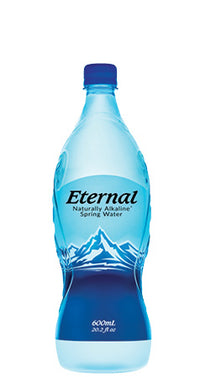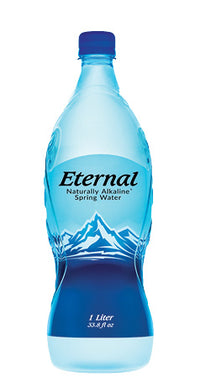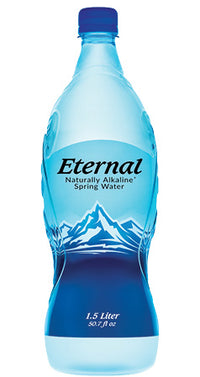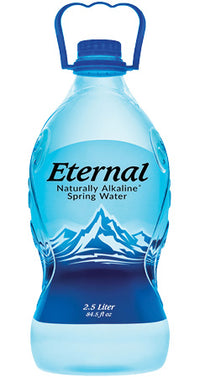
Bottled water is convenient, refreshing, and seemingly infinite. But have you ever wondered if bottled water goes bad or expires?
There are ample reasons why someone might want to understand bottled water's longevity and shelf life better.
For example, someone might keep bottled water as long-term storage in the event of an environmental crisis, such as a hurricane. In addition, some people may buy a lot of bottled water as part of their daily wellness routine and become curious regarding expiration dates and how long they can store it. In addition, some people may buy a lot of bottled water as part of their daily wellness routine and become curious regarding expiration dates and how long they can store it. In this way, understanding bottled water shelf life is more than a curiosity, it’s essential.
There are many reasons, some less obvious than others, why we need to understand if our bottled water expires or goes bad.
Let’s explore the shelf life of bottled water.
So, Does Bottled Water Go Bad or Expire?
Let's dive into some basic concepts to begin. It's important to understand that water itself doesn't go bad. Water is a simple molecule composed of two hydrogen atoms and one oxygen atom, and it doesn't have an expiration date. However, the water's storage container can impact its taste, quality, and safety over time.
The US Food and Drug Administration (FDA) says that bottled water has an unlimited shelf life. However, this doesn’t mean that our friend, chemistry, won’t take a toll on the bottle itself.
Beyond heat, overexposure to sunlight can equally contribute to bottled water degradation. In other words, heat can contribute to your bottled water going bad. So, while bottled water doesn’t expire, per se, we understand it has limitations when we improperly store our bottled water.
Bottled water, such as Eternal Water, typically has a best-by date printed on the label, but this doesn't necessarily mean that the water will go bad on that date. Instead, it's a suggestion from the manufacturer to consume the water by that date to ensure the best taste and quality.
How Long Is Bottled Water Good For?
Let’s get right to the point.
If stored properly, bottled water can last for years without becoming unsafe to drink.
Since water itself does not expire, the real concern lies in the bottle's storage conditions.
For optimal taste and quality, Eternal Water prints a best-by date of two years from the production date on every bottle. This ensures that consumers experience the freshest taste as we intended.
However, if bottled water is kept sealed in cool, dark conditions, it can remain drinkable well beyond this timeframe. Again, we aren’t talking about the taste, only the safety (see the next section for more on that).
Does Bottled Water Expire If Not Opened?
No, unopened bottled water does not technically expire, but over time, its flavor and quality may degrade due to exposure to heat or light. For long-term storage, avoid areas with high temperatures or direct sunlight to maintain freshness. We can’t mention this enough.
Hydrate Smarter: Subscribe for Wellness Tips
What Does a Bottled Water Expiration Date Mean?
Does bottled water expire?
No, it does not. And yes, we’ll explain.
Bottled water expiration dates are not really expiration dates. For example, because juice or milk will actually go bad after the date, they are required to have expiration dates for those products. Bottled water, however, has what’s called a best-by date, which refers to the length of time that the manufacturer recommends the product be consumed for optimal quality and taste.
Bottled water best-by dates are typically printed on the bottle or packaging and are based on various factors, such as the type of plastic used, the bottling process, and the storage conditions.

Not all bottled water companies display expiration dates. Eternal Water displays a best-by date to ensure Eternal Water products taste best when consumed by the specified date. Eternal Water's best-by date is two calendar years from the production date; you'll find a best-by date on every Eternal Water alkaline spring water product.
Shelf Life: How Long Can You Store Bottled Water?
The short answer? It depends on how and where you store it.
If stored under the right conditions, bottled water can remain safe to drink indefinitely. However, its taste and overall quality can change based on storage factors.
Best Storage Practices for Bottled Water
To maximize freshness and prevent degradation, follow these storage guidelines:
-
Cool, Dark Places: Store bottled water in a pantry, cupboard, or basement—anywhere away from direct sunlight and heat.
-
Avoid High Temperatures: Heat can cause plastic bottles to break down over time, potentially affecting the water's taste. Keep bottled water out of hot garages, attics, or vehicles.
-
Fridge Storage: If you prefer chilled bottled water, refrigeration is fine, but not required for safety.
-
Emergency Preparedness: If storing bottled water for emergencies, check best-by dates periodically and rotate stock to ensure the freshest supply.
While Eternal Water bottles come with a best-by date of two years, properly stored bottled water can remain safe beyond that. The key is to store it in conditions that protect it from temperature fluctuations and prolonged exposure to light.
So, What Happens If You Drink Expired Water?
First, let’s clear this up—bottled water doesn’t technically expire. We say this again in case you skimmed the article and landed here.
However, drinking water that has been stored improperly or for an extended period may not be the best experience.
Is It Safe to Drink Bottled Water Past the Best-By Date?
In most cases, yes. If the bottle has been stored properly in a cool, dark place, the water remains safe to drink even past the best-by date. The best-by date is simply a guideline for optimal taste, not a safety warning.
However, there are a few things to watch out for:
-
Plastic Breakdown: Over time, exposure to heat or sunlight can cause plastic bottles to degrade, potentially affecting the taste.
-
Off Smell or Taste: If bottled water has been stored in poor conditions (e.g., excessive heat), it may develop an unappealing taste. If it smells or tastes unusual, it’s best to discard it.
-
Contamination Risks: If a bottle has been opened and left sitting for too long, it may become contaminated with bacteria or dust from the environment. Always seal bottles tightly and avoid drinking from bottles that have been stored open.
How to Tell If Bottled Water Has Gone Bad
While Eternal Water is naturally alkaline and bottled at the source for purity, all bottled water should be checked before drinking if stored for long periods.
-
Does it smell strange? If there’s an odd odor, discard it.
-
Does it taste off? A slightly different taste isn’t necessarily harmful, but if it seems unpleasant, it’s best to replace it.
-
Was it exposed to extreme temperatures? If stored in hot conditions for months or years, consider replacing it. Being proactive never hurts.
For best results, always store bottled water in a cool, dark place and consume it before the best-by date for the freshest taste.
Final Thoughts
Bottled water doesn’t technically expire, but its taste and quality can change over time depending on storage conditions. Properly stored bottled water remains safe to drink beyond its best-by date, but heat and prolonged exposure to plastic can affect its freshness.
Eternal Water bottles have a best-by date of two years to ensure the best taste. For long-term storage, always keep bottled water in a cool, dark place and rotate stock for optimal freshness
Frequently Asked Questions About Bottled Water
Does bottled water expire if not opened?
No, bottled water does not expire. However, over time, its taste and quality may change due to storage conditions.
Why does bottled water have a best-by date?
The best-by date is a guideline for optimal taste, not a safety requirement. Eternal Water prints a two-year best-by date to ensure the freshest experience.
How long does bottled water last in storage?
If stored properly in a cool, dark place, bottled water can last indefinitely. However, prolonged exposure to heat or light may affect its taste.
What’s the best way to store bottled water for emergencies?
Store bottled water in a temperature-stable, dark place away from direct sunlight, chemicals, and strong odors. Rotate stock periodically to ensure freshness.
Does water go bad in a plastic bottle?
Water itself does not go bad, but the bottle may degrade over time, especially in heat. If the water has an odd taste or smell, replace it.



